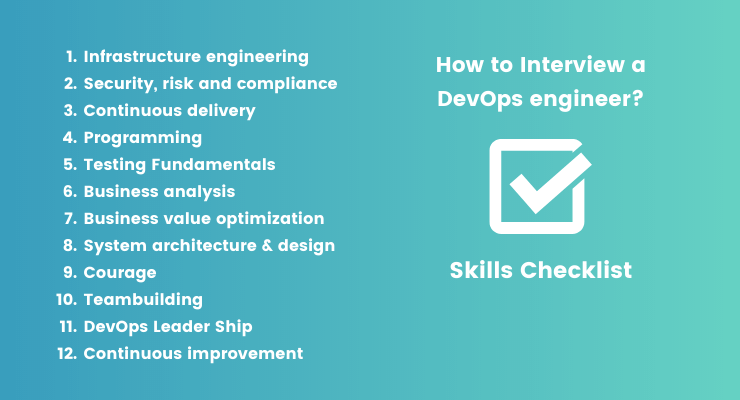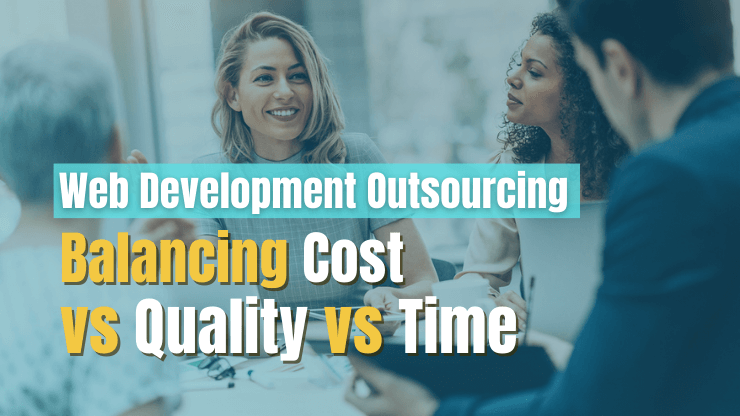Hiring DevOps engineers is hard. In the DevOps Institute's 2020 Upskilling: Enterprise DevOps Skills research, 58% of respondents believe recruiting skilled DevOps employees is difficult, and 48% think retaining them is difficult.
Furthermore, DevOps as a job title is kind of made up by the industry. Thus there is no set path to follow. DevOps is a versatile specialist whose primary responsibility is to assist various development teams in optimizing specific pieces of infrastructure and enabling businesses to improve security, scalability, and efficiency.
At the heart of DevOps recruitment is a question: what are you hoping to accomplish? Understanding the complexities of your project and the difficulties that they raise is critical to hiring the best candidate. In light of this, it is critical to understand what a DevOps engineer is and why you require one.
At SoftKraft we can plan, deliver and manage every step of your cloud migration journey. Learn more about our DevOps consulting services.
What DevOps engineer competencies do you need?
When employing DevOps engineers, it is critical to clearly define the job obligations and distinguish between requirements and preferences. Don't write job descriptions like unicorns!
Some companies need a DevOps engineer that is fluent in a specific language, while others want a DevOps who is fluent in cloud technologies like AWS or Azure. The first step is to define the position's responsibilities and qualifications as needed:
Application and infrastructure planning, testing and development - DevOps engineer's job is to meet business demands. DevOps examines the cloud's individual functions and writes code to scale them. To do it, one must be able to write code in multiple languages. They must also be adept at testing and planning (integrations and additions across many systems).
Maintaining CI/CD pipelines - DevOps engineers build CI/CD pipelines and ensure that all processes, people, and tools work together. They can spot flaws and optimize the pipeline in real time. A good DevOps engineer can keep testing without slowing down the team.
Automation implementation - Automation is why companies hire DevOps engineers. DevOps are in charge of implementing it and improving engineering and IT efficiency. As a result, firms can focus on more strategic tasks
Ensuring security - DevOps engineers’ job is to support the users of the infrastructure they develop. The best way to ensure safety is to start with reliable software. A DevOps engineer should be able to write secure code that protects the cloud from hackers and viruses.
Ongoing monitoring Data collection and understanding how to act effectively on it are critical for any organization. DevOps engineers monitor their apps and infrastructure to identify blind spots, monitor them, and troubleshoot issues.
Where to find a DevOps engineer?
There are four popular methods for hiring DevOps engineers:
Growing an in-house specialist
When hiring a DevOps engineer, you may look to your IT Operations teams for talent. Typically, these teams have concentrated on problem-solving. Due to the increase in complexity and scope of projects, members of these teams have likely had to juggle a great deal of work with people from diverse backgrounds. These individuals make ideal DevOps engineers of the future due to their frequently diverse backgrounds and knowledge.
Also, development engineers can be good candidates because they understand engineering principles and have technology literacy. Find out how they can collaborate to create new products or services and how they can share their creative mindset.
Pros
- High integration and knowledge about existing systems and teams Quick task assignment and implementation as part of your existing teams
Cons
- High cost of training, especially when tasks require high specialization
Hiring a freelance specialist
Freelancer platforms such as Upwork, Freelancer.com, YouTeam, and Toptal are extremely popular for finding IT specialists. These platforms operate on the same principle. You create an account, post a job, select a freelancer (or a team of freelancers), and commence the contract.
Pros
- much cheaper rates
- reviews from previous clients
- wide range of specialists
- great for minor changes and short-term projects
Cons
- no guarantees
- no formal contract signed
- possible language
- different time zone
- management complexities causing more harm than good
Working with recruiting agencies
Another frequently used strategy is to collaborate with recruitment agencies. You inform the agency of the positions you wish to fill, and they provide recruitment services to the extent that you desire, from identifying qualified candidates to conducting interviews and selecting candidates.
Employers pay an up-front fee for assistance in filling a position through executive search. Through the recruitment process outsourcing, the employer entrusts the agency with the entire recruiting function.
Pros
- more time for important strategic tasks
- access to more qualified candidates
Cons
- the cost of recruiting
- lack of control
- indirect candidate access
- potential communication issues
Hiring DevOps engineers through IT companies
This is probably the best option for projects of any size and budget. It is less expensive than hiring in-house employees, but just as reliable.
It's extremely convenient to outsource individual experts or even entire teams to IT companies. They are not only qualified but also equipped with the necessary technology. All you need to do is communicate the specifics of your project and collaborate throughout the process.
Pros
- cost-effectiveness
- guaranteed expertise and reliability
- dedicated manager for each project
- general team experience and quality work
Cons
- different time zones
- possible language barrier
Hire DevOps engineers with SoftKraft
At SoftKraft we provide DevOps consulting services — Hire DevOps Team today! Prior to beginning work, we gather the DevOps project requirements and agree on the desired workflow. Once the team is assembled, we present CVs, invite you to a final interview, and seamlessly integrate them into your ongoing project. As a result, you can complete your work without having to recruit experts.
Engage quality tech professionals
We are driven by 15+ years of experience in IT staff augmentation and engineering software solutions.
Fast process: CVs within 3 days
Time and cost savings - receive first CVs of our specialists and start interviewing candidates.
Risk-free 2 weeks trial
To get rid of any doubts, check the quality of your team with no obligation to pay with 2-weeks trial.
How to interview a DevOps engineer - skills checklist
While every organization's needs are unique, many recruiters and hiring managers look for certain skills in DevOps engineer candidates. Knowing which skills and qualifications are required and which are preferred can assist you in selecting the best candidates.
A well-rounded set of DevOps skills and competencies sets apart successful teams from those that fail. Every team must be proficient in all 12 DASA competencies. Everyone must be ‘competent' in DevOps ideas and practices. No one needs to be a ‘expert' in all areas, as long as the team covers all of them.

Infrastructure engineering
Monitoring, performance management, capacity and availability management, reliability engineering, cloud, containerization.
Infrastructure Engineering is a core DevOps skill. This relates to standardizing, maintaining, and refreshing technological environments.
Infrastructure DevOps teams need these skills in particular. However, it is critical for application-oriented DevOps teams to understand the underlying infrastructure technology (on-premise or cloud-native) so that their applications can best match the standard infrastructure models.
- Explain to me in as much detail as you want the journey of a packet from a web browser to web server and back, from the perspective of the packet.
- How familiar are you with the technical monitoring of infrastructure components?
- How well do you know how to manage infrastructure availability and capacity in relation to a specific IT service?
Security, risk, and compliance
Security, Risk, and Compliance are all about ensuring quality at the source. Secure programming, an understanding of the risks associated with not just the technology but also the functionality being created, and ensuring that business rules being coded comply with industry regulations are all critical components of ensuring that the applications deployed provide value to the customer.
- What is risk vulnerability and threat. Explain with example.
- What is a risk matrix. Why its important?
- Which Security Standard have your worked upon.
- What do you understand by Gap Analysis?
- Explain the difference between process, guidelines, and policies?
Continuous delivery
Continuous Delivery is a critical area of knowledge for DevOps teams. It relates to the technology used to automate the delivery of new code via a well-designed "pipeline" from development to production, but also, and perhaps more importantly, to the conceptual understanding of the process for which the technology is used. Continuous Delivery necessitates a thorough understanding of the entire IT delivery process, from development to production.
- What are the differences between continuous integration, continuous delivery, and continuous deployment?
- What is the difference between a Docker image and a container?
- How is container different from a virtual machine?
- Explain Blue-Green Deployment Technique
- What are some common CI/CD solutions?
Programming
DevOps teams support applications, platforms, or whole stacks and all require programming skills. IT professionals will need to write and change software code. The absence of software engineering capabilities in DevOps teams is one of the primary reasons why many conventional firms will not survive digital disruption.
- What are your skills and knowledge in the software development field?
- Which scripting tools are used in DevOps?
- What is the difference between Monolithic, SOA and Microservices Architecture?
Testing fundamentals
Test Specification ensures that the DevOps team and its customers know how to determine whether new functionality fulfills the demands of the IT service users.
Methods like Test Driven Development emphasize the need of defining tests first before writing code. The team may develop automated testing for each modification to the IT service by combining the other three knowledge areas.
- Explain the role of testing in software development.
- What are the different types of testing?
- How well do you understand the following software tests: unit test, system test, feature test, and regression test?
- Do you have experience in setting up, using, and maintaining automated testing?
Business analysis
Business Analysis entails DevOps teams estimating the impact of an improvement on both the business process and the IT systems that support it. It must into account functional and non-functional requirements, as well as long-term business process development.
The DevOps team must be able to conduct a detailed business analysis so that the solution implemented is effective in terms of functionality, cost, and lead time.
- Tell me about your typical project approach.
- How do you handle changes to requirements?
- How have you handled difficult stakeholders?
- How familiar are you with requirements analysis and product backlog refinement?
- Do you have strong communication, facilitation, and negotiating skills?
Business value optimization
Real-world use of IT services, including direct feedback loop of user comments to team, service level management, the Definition of Done, business activity/performance monitoring, and business case management.
Business Value Optimization is the knowledge area in which IT uses its business knowledge to help find the changes that bring the most value to the business parties it serves.
People focused on this knowledge area will have intimate understanding of the business processes supported by their IT services and will be able to have well-founded talks with business process leaders about the process's progress.
- Explain the steps that turn an idea into a project delivering business value?
- What are the different types of the gap that you can encounter during Gap Analysis?
- What are the various techniques used in requirement prioritization?
Systems architecture & design
Architecture and design knowledge are critical for all DevOps teams, as each team must be able to assess the impact of changes to both its own technology stack and the technology stacks of any connected IT services.
- What is your level of understanding of enterprise architecture standards, concepts, and objectives?
- What is your level of familiarity with the application's architectural design?
Courage
Courage is the capacity to act, to take a risk and try something while also recognizing and mitigating the risks. Much of DevOps is new territory and will remain so for the foreseeable future. While the DevOps way of working will eventually become the norm, IT engineers will still need the confidence to take the next step.
- To what extent do you feel empowered to take control of team activities?
- How do you handle unexpected work-related situations?
Teambuilding
Team Building is a vital skill for ensuring that the diverse IT engineers with their disparate backgrounds work effectively together. At its core, it is about understanding other people’s perspectives, collaboration, mutual accountability, shared purpose, and the ability to support the service/product holistically.
For most of their careers, many IT engineers have worked in circumstances that did not require them to establish teams, except while working in project teams. Their colleagues were soul mates. In the new world of IT, successful IT professionals will be those who can truly collaborate with people from a wide variety of experiences and perspectives.
- How closely do you collaborate with the other members of your team?
- To what extent do you feel competent in assuming the position of another team member?
- Do you have experience working in a variety of roles? I assist my team members in achieving the same.
DevOps leadership
Leadership is one of the necessary elements for a DevOps team to be successful. Most of the time, we confuse management with leadership. Every member of the DevOps team must be encouraged to lead in DevOps organizations.
In order to encourage collaboration and keep teams from stagnating and losing sight of their ultimate aim of consistently ensuring that the service meets the business process requirements, formal and informal leadership must be balanced.
- How much can you do to help your team members accept responsibility for their work?
- What is your decision-making process?
Continuous improvement
Continuous Improvement is the best strategy to delivering better quality. This requires both a problem-solving mindset and the ability to address problems systematically.
- How much time do you allocate to improving yourself?
- How do you handle problems and impediments?
- Do you use a systematic problem-solving process every day to solve problems/impediments in the team?
Conclusion
The current cloud hiring market is crazy and many struggles to find the right people to support their AWS or GCP journey. In order to onboard the experts you need, you have to understand how to properly screen the candidates and how to create a DevOps culture where your employees can grow. DevOps culture spans over multiple disciplines starting with operational excellence, through an engineering practice, to team-building. This is not a trivial task to build a DevOps-oriented organization, so don’t be afraid to look for support in this process.







